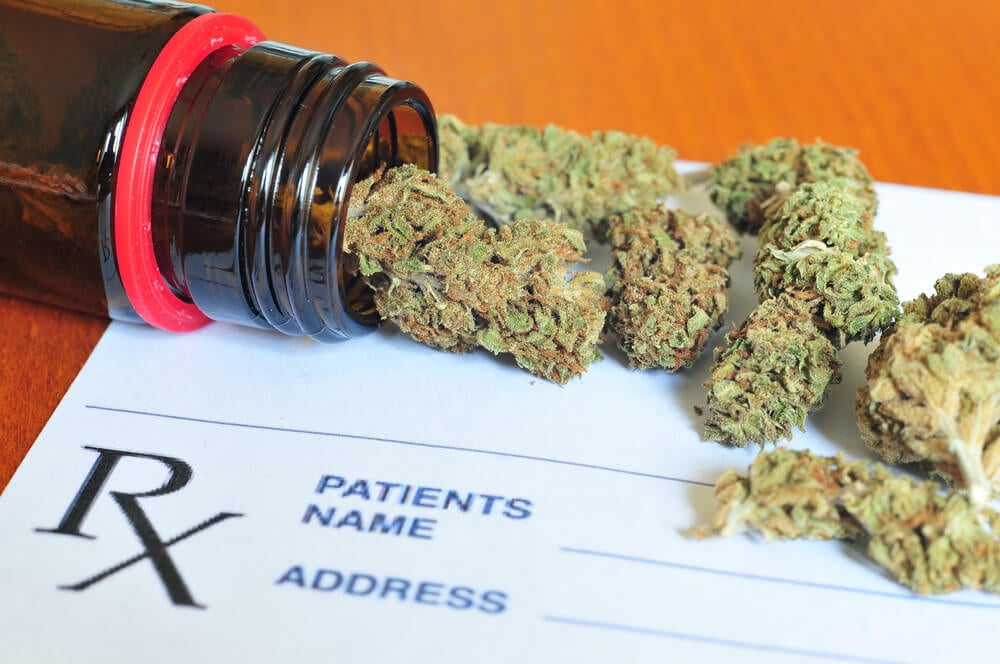Table of Contents
- History of Recreational Weed
- What is Street Bud?
- Medical Grade Weed
- What About Retail Weed In Stores?
- Final Thoughts
The gradual legalization of marijuana has rekindled the debate on this psychotic herb. One of the subjects that arise from time to time is the difference between street weed and medical weed. Although the definitions might seem to be pretty straightforward, there is more than what meets the eye. This article will guide you on the differences between the two, including the history, cleanliness, legality, and characterization. Without further ado, let’s dive in.
History of Recreational Weed
The history of recreational weed is long, dating back to the first century. Herodotus, a Greek historian, said that Iranian nomads were smoking cannabis flowers and seeds to get high. In 800 AD, the Middle East and parts of Asia were smoking hashish. Hashish is purified marijuana that is smoked through a pipe. The more Islam spread, the more recreational marijuana became popular.
But how did weed get to Canada? The history of weed in Canada is mysterious, although some believe indigenous communities in Canada were using it for cultural, medical, and textile purposes.
In 1606, the experimental cultivation of cannabis by Louis Hebert started in the Quebec Province. When the British colonized Canada in 1763, they sent more than 2,000 bushels of cannabis seeds to farmers in Quebec.
The cannabis industry continued to thrive and even expanded its activities to Nova Scotia throughout the 1800s. However, recreational weed would soon be abolished and criminalized in 1923.
Cannabis Legalization in Canada
Since cannabis criminalization in 1923, several groups and individuals filed appeals to have the decision overturned. It was not until 2000 when the Ontario Court of Appeal stated that weed criminalization was unconstitutional. In the ruling, the court questioned why the medical benefits of weed were overlooked during the ban. The ruling rekindled the debate on whether weed should be legalized.
A year later, medical weed was legalized, giving patients the freedom to grow the plant or buy the product from licensed dealers. In 2013, new rules were put in place to allow the production and distribution of medical cannabis at the federal level.
In 2015, the Liberal government announced the plan to legalize weed in Canada and created a task force a year later to discuss the same. The stakeholders in this Task Force on Marijuana Regulation and Legalization involved indigenous, provincial, municipal, and territorial governments throughout Canada. The task force revealed that marijuana prohibition brought more harm than good since weed users would buy it from the streets, risking their lives.
In 2018, weed became legal in Canada, which was a big win for the industry. People above the age of 18 can now buy weed in regulated retail stores or by mail. In addition, adults are allowed to grow up to 4 cannabis plants at home. Alternatively, an adult can possess up to 30g of dry cannabis in public.
Since then, more amendments have taken place, including the legalization of weed edibles (baked goods and drinks and concentrates) in 2019.
What is Street Bud?
Street bud is a slang used to describe recreational marijuana sold by growers or dealers on the streets. More often than not, street bud is common in areas where fewer dispensaries are available.
One of the biggest mysteries yet to be solved is how street bud has remained popular, even after the legalization of recreational marijuana. There are two possible explanations as to why this occurs. First, by the time weed is legalized, the people are already used to street bud. Second, the restrictions placed on weed, together with the high prices on legalized marijuana, makes people stick to street bud.
Where Does Street Weed Come From?
If you have lived in an area where recreational weed is illegal, you might have noticed how street weed thrives. But have you asked yourself where this weed originates from? Here is a quick overview of street weed.
Street weed is grown from the same strains as legal marijuana. However, during the cultivation, extraction, and processing, less attention is given to quality. During cultivation, the grower might be forced to use excess chemicals to hasten the growth and yield rate. Consumers risk their health and lives by consuming street weed.
During the extraction and processing processes, the growers rarely give attention to the cannabinoid profiles. This explains why the weed might be overwhelmingly potent or just mellow.
With Legalization, Are There Reasons for Continued Growth Of The Black Market?
The more recreational marijuana is legalized, the more the black market for weed continues to grow. The puzzle surrounding this concept is one of the most interesting to solve. After deep research on different markets, we came up with three major reasons why the black market is still thriving. The reasons are:
- The slow approval process for dispensaries
The approval process for cannabis licenses in Canada is complex. The low approval rate for cultivation licenses has led to a severe shortage of supplies. With the low approval rates and consequently the low supply of legal weed, the black market in Canada is experiencing a boom.
- Spotty regulatory enforcement
The regulatory enforcement for cannabis licenses has been highly ineffective, creating a loophole for the black market to thrive. For instance, data collected by audit firms have shown that several dispensaries operate without approval. Lack of operating licenses creates leeway for the sale of street weed.
- Supply and tax issues
Canada has been experiencing a shortage in the supply of cannabis, thanks to the slow process of approving applications. The supply deficit and lack of locations pushes consumers to continue with street weed since they are assured of regular supply.
Despite recreational weed being legalized, excessive taxes on the same have made it very costly. People trying to open dispensaries have to part with a huge chunk of money as taxes. This explains why the number of dispensaries is low. Since the high demand overrides the supply, consumers get weed from the black market throughout Canada.
Medical Grade Weed
Medical grade weed is primarily used to manage medical conditions, unlike recreational weed that gives users “high” effects. Before weed is classified as medical, it must prove its viability in managing various health conditions, including the following:
- Chronic pain, inflammation, and muscle spasms
- Alzheimer’s symptoms
- Glaucoma
- Stress, PTSD, and anxiety disorders
- Eating disorders
Is Medical Weed Stronger Than Regular Weed?
One of the biggest myths peddled on the internet is the efficacy and unmatched potency of medical cannabis compared to regular weed. Proponents of this myth cite “strict” tests on medical cannabis to ensure that they are high-grade. Newsflash! The assertion that the potency of medical weed is unmatched is not 100% true.
Some tests carried out on regular weed have revealed insane THC amounts, which translates to high potency. However, there is a catch on the potency of regular weed. In some instances, the THC levels for regular weed are such that the user does not get “high.” This means that regular weed can be a “hit” or “miss,” which is different from medical weed.
Therefore, the difference in potency between medical weed and regular weed is consistency assurance.
With The Legalization Of Weed, Will The Quality Be Better Than Street Weed in Canada and The United States?
The legalization of weed plays a huge role in determining the quality of products in the market. However, the quality efficacy depends on whether the dispensaries operate according to the set standards after legalization. Some of the quality features that could improve after the legalization of weed include the following:
- Potency
The potency of weed is a great determinant of quality and must be taken into consideration. The legalization of weed would ensure that the dispensaries keep tabs on the THC levels, which helps gauge the quality of weed. Unlike street weed that might have extremely low or high THC levels, you will be assured that the weed meets your potency expectations with legalized weed.
- Flavour
The legalization of weed in Canada will also ensure that the flavour of weed is taken into consideration. The regulations will ensure that dispensaries pay attention to the flavour of cannabis before stocking it for buyers. You wouldn’t want to buy weed whose taste is intolerable.
- Purity
The purity of weed is crucial to consumers, and therefore a body should be in place to ensure that it is maintained. Weed purity is a measure of the properties in weed, such as cannabinoids. Legalizing weed will force dispensaries to maintain high purity levels for them to operate with minimal bottlenecks.
What About Retail Weed In Stores?
There are no huge differences between the weed that retails in stores to medical and street weed. The weed retailed in stores undergoes rigorous tests to ensure that it meets the highest quality standards, just like the medical weed. There are, however, several differences between weed that retails in stores and street weed in terms of consistency, purity, potency, and flavour.
Pros and Cons of Street Weed & Medical Weed
As Canada continues to enjoy the freedom of weed, a new debate has emerged comparing street weed to medical weed. Although this debate might seem senseless at face value, it opens the scope of viewing weed. Without further ado, let’s get to the pros and cons of each weed before coming up with a final verdict.
Pros of Street Weed
- It might contain high THC levels – Weed buyers might be treated to an exceptionally high THC experience, which translates to high potency.
- Affordable – Weed smokers operating under a shoestring budget can get high without breaking the bank since street weed is relatively cheaper than medical marijuana.
- Easy to find – It is easy to locate a dealer for street weed, unlike medical weed dealers spread in remote areas.
Cons of Street Weed
- No guarantee of quality – The quality of the street is a hit or miss, which is a big letdown to a large extent.
- No testing – Most of the street weed does not undergo professional testing. As a result, consumers are exposed to harmful pesticides and heavy metals.
- Still can be expensive – The assumption that street weed is affordable is flawed. Street weed is still costly, especially in areas where weed is still illegal.
Pros of Medical Weed
- Consistency in quality and cleanliness – Medical marijuana users are assured of the quality and purity of the weed. Before the weed is stocked, retailers ensure that it contains the right potency and purity.
- Fully lab tested – Medical weed must undergo rigorous testing, including third-party laboratories, to ascertain whether it meets the right safety standards.
- Legal throughout Canada – Medical cannabis is given more priority over recreational weed in Canada and is therefore legal throughout the country.
Cons of Medical Weed
- Pricier than street weed – The heavy taxation on medical weed makes it costly.
- Limited number of dispensaries – The number of dispensaries in each province is limited, making it hard to access the weed.
- Stigma on weed – The stigma associated with weed makes it hard for people to buy weed from weed retail stores due to limited privacy reasons.
Final Thoughts
Ultimately, your decision to go with street weed, medical weed, or even purchasing through a retailer, like us, is going to bring your nearly the same product.
However, at Kootenay Botanicals, we provide a unique experience. It’s quick, easy, and a self-service option for you to purchase your weed online here.
We also offer same-day delivery if you’re in Vancouver and anywhere else in Canada within a few days.
Check out our shop today and find anything from Flower, Vapes, Edibles, and anything else your canna-heart desires!



